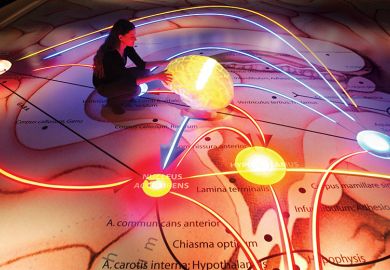Bryan Hall begins this meditation on value with a nice gesture towards the aim, and indeed the phrasing, of the opening of René Descartes’ Meditations on First Philosophy (1641). As with the Cartesian “method of doubt” applied to all questions of truth and knowledge, he uses a world stripped of moral signage and social props by rampant infectious zombies to lay waste to any certainty about what he has valued, so as to see if anything of value remains. He does this not by setting up an uninvolved what-if thought experiment, but by putting himself in a protective isolated bunker on a personal quest for value, just as Descartes sits alone by his fire seeking that which is beyond doubt true. Doubt and zombies, respectively, destroy what others held to be true for Descartes and what others claim to be of value for Hall, enabling them to start afresh from the bottom up.
Americans have a thing about textbooks. They often use them as the basis for university courses. The British university way is to direct students to primary “great philosopher” sources, and then aid comprehension by pointing them to judiciously chosen secondary readings. Americans seem to like it all in one place.
Just as Americans have a thing about textbooks, they also have a thing about zombies – and this book cutely puts the two together. Being a British film, Edgar Wright’s Shaun of the Dead (2004) is a notably comic treatment of zombies, but those across the Atlantic seem to take their zombies far more seriously. Indeed, they appear to have become the major threat to the destruction of normal life, replacing and far outstripping aggressive aliens – if the proliferation of popular portrayals is anything to go by. Why zombies, and what they say about the deep anxieties of the American psyche, is anybody’s guess – but I suppose that you know where you are, what you’re up against, with zombies, while aliens can turn up in any shape or form.
So, as a university textbook, I can see Zombie Apocalypse going down a storm with US liberal arts students, but not so much with UK philosophy students, who might feel a bit patronised, while lecturers may be reluctant to teach from it.
This is not to suggest that Hall does not present sound philosophy. Piggybacked on to the zombie narrative is an expert and well-laid-out tour through various approaches to ethics: realism and anti-realism about values, deontological and utilitarian theories and the like. Hall knows what he is talking about and writes in nice clear crisp prose. It should be mentioned that the zombies involved in the story are, you might say, common or garden-variety zombies, the undead, neck-biting, blood-all-over-the-place sort that infect you so you turn into one, rather than the thought-experiment philosophical zombies (whose possible existence is argued about) used to explore issues in the philosophy of mind by positing something that behaves exactly like a person but possesses no inner mental life.
So this is an ethics textbook and a good one. Personally, I find the zombies distracting, a kind of extra burden involved in understanding the philosophical ideas on value and ethics, but others may feel differently.
John Shand is an honorary associate in philosophy at the Open University.
An Ethical Guidebook to the Zombie Apocalypse: How to Keep Your Brain without Losing Your Heart
By Bryan Hall
Bloomsbury Academic, 240pp, £16.99
ISBN 9781350083622
Published 26 December 2019
POSTSCRIPT:
Print headline: Descartes meets the undead
Register to continue
Why register?
- Registration is free and only takes a moment
- Once registered, you can read 3 articles a month
- Sign up for our newsletter
Subscribe
Or subscribe for unlimited access to:
- Unlimited access to news, views, insights & reviews
- Digital editions
- Digital access to THE’s university and college rankings analysis
Already registered or a current subscriber?







